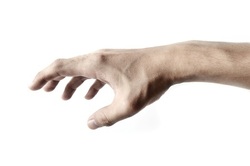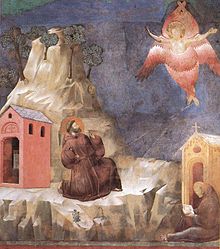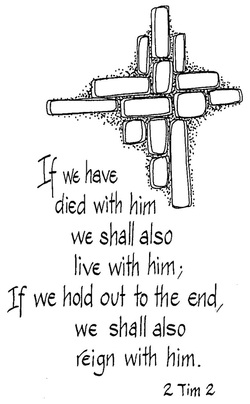 Another day, another miracle. If we've been Christian a long time, and read the Scriptures for many years we can become ho-hum about all the miracles Jesus performed and how much he suffered on our behalf. The challenge can be to read them with new eyes and hear them with new ears. Before we read Scripture, we should ask the Holy Spirit to be with us and help us to hear what God is saying to us today through that particular passage. Today let's read Luke 6:6-11 (The same story is also told in Matthew 12:9-14 and Mark 3:1-6.) Jesus heals a man with a useless right hand. Perhaps the hand had been crushed in an accident or maybe the man had a stroke and no longer had the use of that hand. We have the description of the hand being shriveled, but we don't know why. The healing is intertwined with the Jewish leaders' criticism of Jesus for curing people on the Sabbath - which they considered to be work. Of course, none of them had ever restored someone's hand. So perhaps the real reason they were mad was that Jesus made them look bad. He could cure people and they, the educated and most faithful, couldn't. In Luke's version the healing of the hand is almost incidental to the story. But it was not incidental to the man. No doubt his life was changed by having his right hand back. For reflection: One method of getting something new from a Scriptural passage we've read many times is to place ourselves in the story. There are many options for who we might be in this story: the person with the shriveled hand, a Pharisee or teacher of the law, Jesus, a family member of the man being healed, one of the bystanders. Where am I in the story? What do I see and hear now? Let us pray. Holy Spirit, I don't want to become immune to the message. Help me to see what you want me to see, and hear what you want me to hear, and do what you want me to do today. Photo credit: Copyright: <a href='http://www.123rf.com/profile_aparagraph'>aparagraph / 123RF Stock Photo</a>
0 Comments
 As I looked around the church on Sunday, I noticed how many people in the congregation were using canes, walkers and crutches. Those are great testimonies to the treatments of modern medicine, but not such great testimonies to the healing power of Jesus. When Jesus saw the faith of the man's friends, he healed the paralytic. We looked at this story of healing on Monday (Matthew 9:1-8; Mark 2:1-12; Luke 5:17-26). We don't know if the paralyzed man had faith. Maybe he did; maybe he didn't. But we know that his friends did. They carried him to Jesus, tore a hole in the roof, and, using ropes, lowered him in front of Jesus. That took planning, preparation and persistence. This may be the case when we pray with someone. They may not have much faith, but their friend does or we do. The person in need of prayer may be hope-filled but not faith-filled. They may be doubtful or skeptical. They may be incapable of getting to Jesus on their own. We may be the only one praying who has faith. We may need to plan, prepare and persist so that the experience of healing can bring them to faith. What would have happened to the man who was paralyzed if he hadn't gotten a little help from his friends? He could not have gotten to Jesus on his own. His friends helped him get his life back. For reflection: Is there anyone among my friends with a knee, hip or ankle injury? Anyone facing joint surgery with weeks of rehabilitation afterward? Am I the friend who will take them to Jesus? Can I help them get their life back? Let us pray. Jesus, you instantly healed the man who was paralyzed because his friends brought him to you. I bring to you today _____. I don't want him/her to suffer any longer. I don't care what the doctors say about the length of their recovery. I care about their health and their relationship to you.  Another of Jesus' healings is of a man who is paralyzed (Matthew 9:1-8). The man's friends brought him to Jesus on a mat. Now we don't know how long the man had been paralyzed or why he was paralyzed. Was he born that way or was he hurt in an accident? How old is he? Is he married? We are not told. The encounter is a little strange because the first thing Jesus says to the man is, "Take heart, son; your sins are forgiven." His friends didn't bring him there to have his sins forgiven; they brought him to be healed. Evidently Jesus thought it more important to forgive his sins than to heal him physically (recall Matthew 5:27-30). Nevertheless Jesus heals him physically also. Jesus attends to the full person - body and soul. For reflection: Jesus is interested in the whole person. When I pray with someone for healing, am I listening to Holy Spirit for guidance about praying for the whole person? Who have I seen in the last few days who needs prayer for healing? Let us pray. Jesus, you set an example that is not easy to follow. People don't bring friends to me for healing. I have to be brave enough to step up and ask if they would like prayer. Even though people seldom say "No", it still takes courage on my part. Strengthen me with more courage, please.  Jesus, according to the Gospels, worked miracles large and small. There were so many that the disciples didn't even try to record them all. When they did record them, they didn't always give specifics. Take for example just a few sentences of Matthew's gospel - 8:14-16. The first two verses are about the healing of Peter's mother-in-law. Probably the only reason this healing was mentioned is because it was Peter's mother-in-law. She had a fever. From just the touch of Jesus' hand, she was made well enough that she got up and started cooking and feeding them. It's not a big miracle unless you are the one down with a fever. But it was enough of a miracle that word spread because the next sentence gives it away: "When evening came, many who were demon-possessed were brought to him and he drove out the spirits with a word and healed all the sick." It's a big jump to go from healing a woman with a fever to healing the demon-possessed. But somehow people had hope that if they brought people with any kind of sickness to Jesus he would heal them. Their hope was not misplaced. He healed all the sick. For reflection: How did we get from the evidence of the gospels that a big part of Jesus' ministry was healing people to the state of many Christian churches today where it is not normal to pray for healing, except in a general way? When was the last time I prayed with someone for healing? Let us pray. Jesus, I want to do your will. If that means praying with people to be healed, so be it. If I see someone this weekend who needs prayer for healing, even if they only have a cold or a fever, help me to be bold enough to offer to pray with them. Thank you for always being with me.  How many miracles did Jesus perform while he was on earth? Lots, but we don't know precisely now many. John says toward the end of his Gospel that Jesus did many miracles that are not recorded, but that John wrote his gospel so that we might believe that "Jesus is the Christ, the Son of God, and that by believing have life in his name." (John 20:31) Let's spend some time looking at a few over the coming weeks. More than once Jesus healed lepers. At that time lepers were shunned from society because leprosy was contagious. So being healed of leprosy was a life changing event. The man approaches Jesus on his knees, begging to be healed. "If you are willing, Lord, you can make me clean." Jesus replied, "I am willing. Be clean!" There is no doubt in the leper's mind that Jesus can heal him. The doubt is in whether or not Jesus would want to heal him. Jesus' response is to assure the man that he does indeed want to heal him. (This healing is recorded in Matthew 8:1-4, Mark 1:40-45 and Luke 5:12-16.) There was no medical cure for leprosy until the 1990s. For reflection: Jesus does indeed want to heal me. What do I want healed today? Will I believe more strongly in Jesus if I am healed? Will someone else believe in Jesus if I am healed? Let us pray. Jesus, because you healed a man instantaneously of a disease for which there was no known cure, I ask for your healing. I need to be healed of _____. Like the man with leprosy, I will tell others what you have done for me.  Today is an excellent day to praise God with an early Christian prayer called the Te Deum. You are God: we praise you; You are the Lord: we acclaim you; You are the eternal Father; All creation worships you. To you all angels, all the powers of heaven, Cherubim and Seraphim, sing in endless praise: Holy, holy, holy, Lord, God of power and might, heaven and earth are full of your glory. The glorious company of apostles praise you. The noble fellowship of prophets praise you. The white-robed army of martyrs praise you. Throughout the world the holy church acclaims you: Father, of majesty unbounded, your true and only Son, worthy of all worship, and the Holy Spirit, advocate and guide. You, Christ, are the king of glory, the eternal Son of the Father. When you became man to set us free you did not spurn the Virgin's womb. You overcame the sting of death, and opened the kingdom of heaven to all believers. You are seated at God's right hand in glory. We believe that you will come, and be our judge. Come then, Lord, and help your people, bought with the price of your own blood, and bring us with your saints to glory everlasting.  During the really cold weather two women evangelists came knocking on my door. One asked me to read a Scripture from one of the prophets. It promised a bad reward for those who are evil and a good reward for those who are good. The woman asked me, "Isn't that good news?" I replied, "It's not good news for the evil." "Oh," she said, "I meant for you to read another verse." This one was about the Kingdom of God. So she asked, "Where do you think the Kingdom of God is?" I replied, "It's here on earth." But said disagreed. She said, "I think if you read the Scriptures more closely you'll find that the Kingdom of God is in heaven." "Jesus came to bring the Kingdom of God on earth, and He did," I responded. "We don't see the fullness of it yet, but it is here all around us." The other woman with her was considering this, but the woman speaking would have none of it. So I continued, "Not only is the Kingdom of God all around us it is also within us." Having given them a little something to think about, I bid them farewell after complimenting them for their tenacity in being out on such a cold day. I was reminded of this by reading two Scriptures this morning. Psalm 132:7 "Let us go to his dwelling place; let us worship at his footstool" and Revelation 21:3, "Now the dwelling of God is with men, and he will live with them. They will be his people, and God himself will be with them and be their God." For me these two verses bring up contradictory images: either we go to God's dwelling or he comes to us. The psalmist was thinking of going to the Ark of the Covenant where God dwelt. In Revelation, the author is speaking of his vision of the new Jerusalem where there is no Ark of the Covenant, no temple building because Jesus himself is the Ark, the Temple and he is among and within his people. There is no separation between God and his people. For reflection: Today let us secure ourselves in the heart of God, listening to the Father's heartbeat. Let us pray in rhythm with the heartbeat: Love you. Love you. Love you.  (In honor of the kidnapped girls in Nigeria and their mothers.) Korea, early 1800s Cecilia's husband was killed by the authorities because he was Christian. Eventually she went to live with her son who was involved in dangerous missions work. Cecilia prayed for the success of her son's work and practiced a life of sacrifice so that others might eat. At the age of 79 Cecilia was arrested. The authorities demanded that she renounce her faith and tell them where her son was. She refused and was whipped repeatedly until she died with the names of Jesus and his mother Mary on her lips. (This account is taken from the May issue of Magnificat, an excellent resource for daily prayer and Scripture reading. http://www.Magnificat.com ) For reflection: Christians have been persecuted since the time of Jesus. Several times per hour, somewhere in the world, another Christian dies. Let us pray. Contend, O Lord, with those who contend with me; fight against those who fight against me. (Psalm 35:1) We ask you, Lord, to deliver the girls in Nigeria from their abductors without further harm and to release from prison all who are persecuted for their faith.  We were talking about the apostle Paul and his lists of good and bad habits and attitudes. He speaks of "putting on" the good and "taking off" the old. One good activity he mentions is to "let the word of Christ dwell in you richly" (Colossians 3:16). I teach courses online in various theological subjects. Several of the courses are on Scripture. The students often lament that they don't have time to fit more Bible reading into their lives. Many people don't seem to know that you can now listen to the Bible on your smart phone or tablet. The Bible is on CD in several formats - with or without background music, in dramatic readings or with only one narrator. So, I think that if we want to fit more Scripture into our day, we can. Listening to it while we are driving or traveling or exercising may not be prime time but it is good time and can be one way of letting the Word enter into us more frequently. For reflection: Am I getting as much time in with God's word as I would like? If not, what can I do to change it? Let us pray. "How can a young man keep his way pure? By living according to your word. I seek you with all my heart; do not let me stray from your commands. I have hidden your word in my heart that I might not sin against you. Praise be to you, O Lord; teach me your decrees. (Psalm 119:9-11)  In his letters, St. Paul is fond of providing lists of bad things to avoid and good things to do. He also is quite clear that our old rebellious nature died when we were baptized. Speaking for myself, it does not always seem that way. I think I'm just as temped to do things on the bad list as I would have been without baptism - but it's hard to know for sure. I've been baptized a long time. When writing to the Colossians, Paul tells them that the old rules - don't do this, stay away from that - simply don't work and never did (2:20-23). Instead, since we have been baptized into Christ's death and raised with his resurrection, we should change our mindset. Change what we think about. Put off the old and clothe ourselves with the new ways of Christ. In baptism, this is symbolized by putting on a white garment. And what does this white garment represent? Compassion, kindness, humility, gentleness and patience. Forgiveness, peace and thankfulness (3:1-15). Some years ago I asked a young boy, who had just been baptized and had on his white garment, what did it mean when the pastor told him to bring it "unstained" to the judgment seat of heaven. He said, "Don't get mustard on it." For reflection: How is my white garment looking? Let us pray. Jesus, would you give me a visual on how my white garment is looking today? Photo Copyright: 'http://www.123rf.com/profile_olgacov'>olgacov / 123RF Stock Photo</a> |
AliceI started this website and blog on May 1, 2012. I am a Catholic who has been in ministry for many years. I first developed what I would call a close relationship with Jesus in the early 1970s. Ever since then I have been praying with people for healing and other needs. It is because I have seen so many of these prayers answered that I am so bold as to offer to pray for you individually through this website and phone line. Archives
July 2021
Categories
All
|
Proudly powered by Weebly

 RSS Feed
RSS Feed